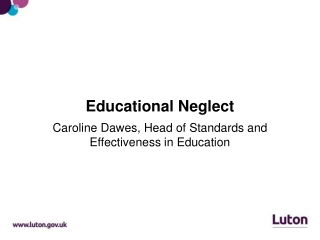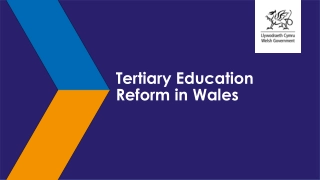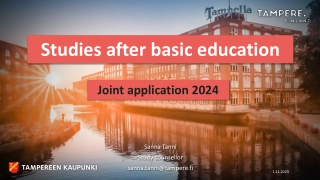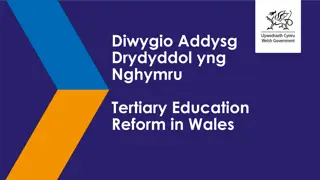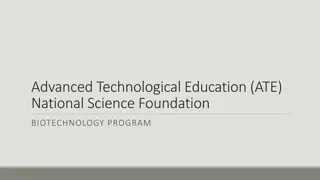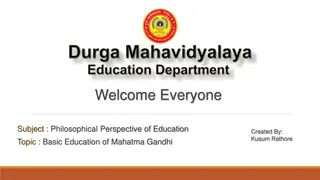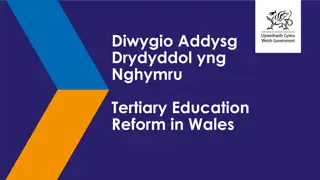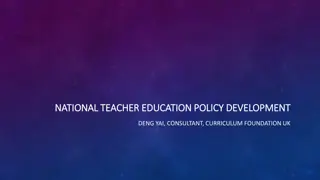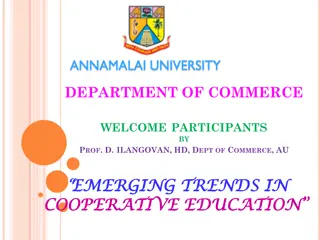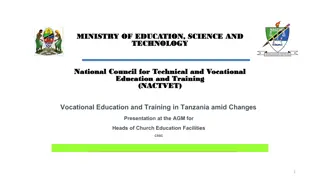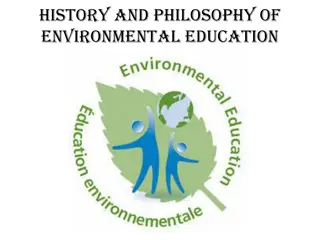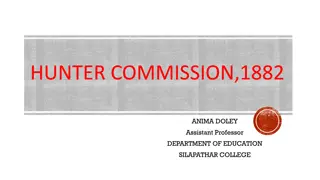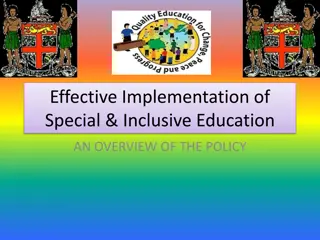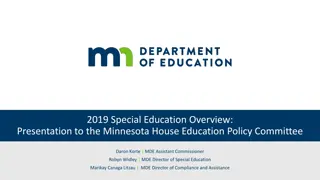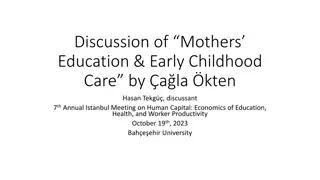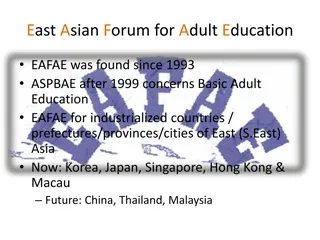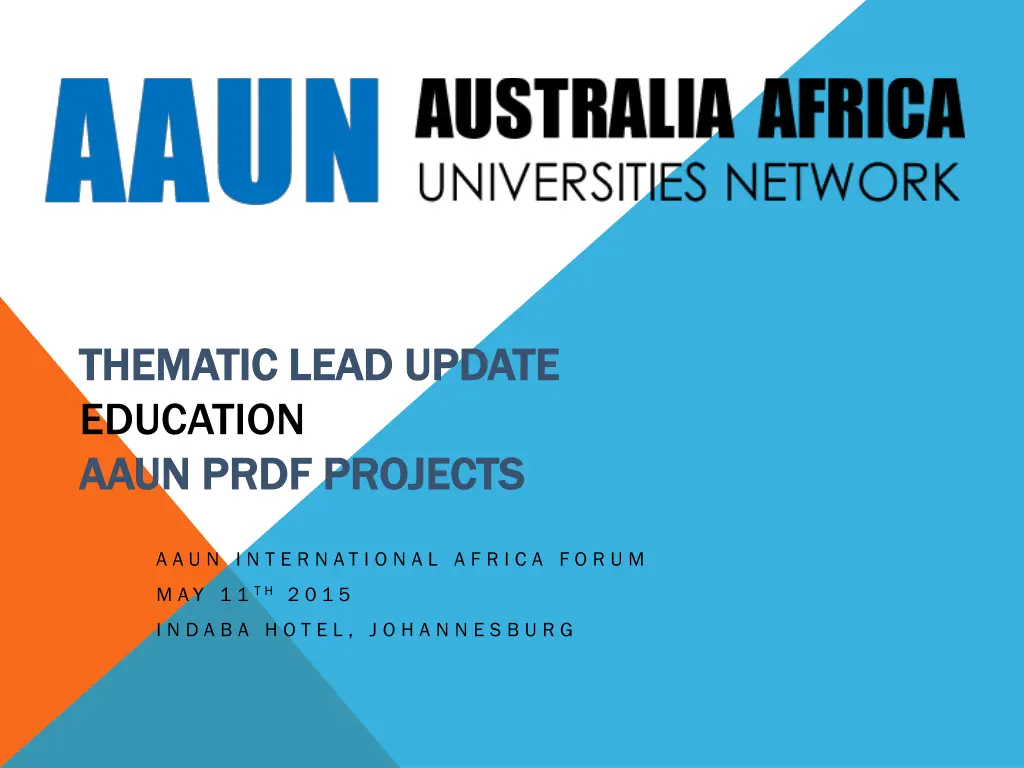
International Education Thematic Lead Update and Mapping Partnerships in Higher Education
Stay updated on the progress of international education projects with a thematic lead update and explore partnerships in higher education between Australia and Africa. Learn about ongoing initiatives, key collaborators, and the development of interactive learning materials for education practitioners. Follow the journey towards enhancing educational outcomes through global collaboration.
Download Presentation

Please find below an Image/Link to download the presentation.
The content on the website is provided AS IS for your information and personal use only. It may not be sold, licensed, or shared on other websites without obtaining consent from the author. If you encounter any issues during the download, it is possible that the publisher has removed the file from their server.
You are allowed to download the files provided on this website for personal or commercial use, subject to the condition that they are used lawfully. All files are the property of their respective owners.
The content on the website is provided AS IS for your information and personal use only. It may not be sold, licensed, or shared on other websites without obtaining consent from the author.
E N D
Presentation Transcript
THEMATIC LEAD UPDATE THEMATIC LEAD UPDATE EDUCATION AAUN AAUN PRDF PRDF PROJECTS PROJECTS A A U N I N T E R N A T I O N A L A F R I C A F O R U M M A Y 1 1T H2 0 1 5 I N D A B A H O T E L , J O H A N N E S B U R G
1. MAPPING 1. MAPPING AUSTRALIA AFRICA PARTNERSHIPS IN AUSTRALIA AFRICA PARTNERSHIPS IN HIGHER EDUCATION HIGHER EDUCATION Dr Rose Amazan, UNE, Australia Prof. Anthony Welch, Co CI- University of Sydney, Australia Professor Damtew Teferra, KwaZulu Natal, South Africa, A/Prof Chika Sehoole- University of Pretoria, SA, Prof Crain Soudien, Co CI- University of Cape Town, SA Derek Gripper, University of Cape Town, SA Dr. Jude Ssempebwa, Makerere University, Uganda Dr Ronald Basaso, Makerere University, Uganda Dr Peter Neema-Abooki, Makerere, University, Uganda Monash, Newcastle and Griffith comprise the 3 Australian case studies selected, while the African case studies are Makerere, UCT and Pretoria.
1. MAPPING 1. MAPPING AUSTRALIA AFRICA PARTNERSHIPS IN AUSTRALIA AFRICA PARTNERSHIPS IN HIGHER EDUCATION HIGHER EDUCATION Work has commenced on the Australian and African case studies, largely via desk audits. A challenge has been to stimulate initial conversations and contacts between the members of the African team, and to select one of the team to take responsibility for overall project management. Significant communication has taken place between Sydney, UCT, Kwazulu Natal and Pretoria, and Gripper and Tefera are now in contact and collaborating. The final workshop, planned for Makerere later in 2015 will include plans for publication, future collaboration, and sources of funding.
2. 21ST 2. 21ST CENTURY SKILLS FOR EDUCATION CENTURY SKILLS FOR EDUCATION PRACTITIONERS: RAPID PRACTITIONERS: RAPID ELEARNING DEVELOP INTERACTIVE LEARNING MATERIALS DEVELOP INTERACTIVE LEARNING MATERIALS ELEARNING TOOLS TO TOOLS TO Assoc Prof Mohammad Santally- CI- University of Mauritius, Mauritius Mrs Dorothy Cooshna-Naik- University of Mauritius, Mauritius Mr Kevin Sungkur- University of Mauritius, Mauritius. Ms Yousra-Rajabalee- University of Mauritius, Mauritius. Prof Moses Mokooma- Makerere University, Uganda A/Prof Vanessa Chang, Curtin University, Australia.
2. 21ST 2. 21ST CENTURY SKILLS FOR EDUCATION CENTURY SKILLS FOR EDUCATION PRACTITIONERS: RAPID PRACTITIONERS: RAPID ELEARNING DEVELOP INTERACTIVE LEARNING MATERIALS DEVELOP INTERACTIVE LEARNING MATERIALS ELEARNING TOOLS TO TOOLS TO Email communication with partners Brainstormed locally A tentative plan of work has already been elaborated. Plan was to be shared with the collaborators on1st May (project official kickoff) and a skype meeting to discuss same. The next phase would be to publish a book on the rapid elearning methodology, and to explore the possibility of using augmented reality as educational aids for illustration on the book. This will require further funding and research. Key challenge- communication with AAUN secretariat
3. 3. DEVELOPING AND RETAINING THE NEXT GENERATION DEVELOPING AND RETAINING THE NEXT GENERATION OF ACADEMICS AND RESEARCHERS OF ACADEMICS AND RESEARCHERS Assoc Prof Mbulungeni Madiba- CI University of Cape Town, SA Dr Jasmina Jauferally-Fakim- University of Mauritius, Mauritius Prof Chaya Herman- University of Pretoria, SA Prof Felix Mavondo- Monash University, Australia Dr George Odhiambo, University of Sydney, Australia Dr Lorraine Towers, University of Sydney, Australia Dr Mignonne Breier, University of Cape Town, SA. First (Planning) meeting scheduled for May12th.
4. MASTER 4. MASTER OF BIOSAFETY JOINT DEVELOPMENT OF BIOSAFETY JOINT DEVELOPMENT PROJECT PROJECT A/Prof Andrew Drinnan- University of Melbourne, Australia Prof Kwabena Bosompem- University of Ghana, Ghana Prof John Kimenju- University of Nairobi, Kenya.
4. MASTER OF BIOSAFETY JOINT DEVELOPMENT 4. MASTER OF BIOSAFETY JOINT DEVELOPMENT PROJECT PROJECT Progress to date has involved the preliminary planning and development of a basic curriculum plan for the M.Biosafety, and establishing the expectations of how it might be delivered in Africa and supported from Australia. Currently planning a visit of Drinnan and Keese to Accra and Nairobi in the week of 14-21 June. This will be followed up by visit of Africans to Melbourne later in year.
4. MASTER OF BIOSAFETY JOINT DEVELOPMENT 4. MASTER OF BIOSAFETY JOINT DEVELOPMENT PROJECT PROJECT No No insurmountable challenges insurmountable challenges Initial Skype conference call network connections in Africa led to failure; Teleconference call at a later date (between participants from Melbourne, Canberra, Kenya, Ghana, South Africa, and Italy) was successful, Next step is to expand the curriculum into a series of more detailed subject syllabi to determine what the teaching capabilities are, and what resources need to be developed to support the curriculum. The planned visit to Africa in July will be the first opportunity for all of the participants to meet face-to-face.
THANK YOU THANK YOU

